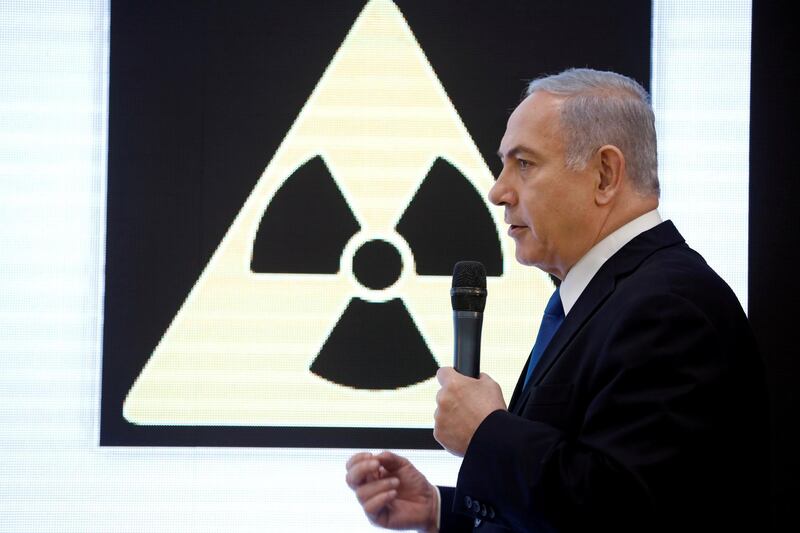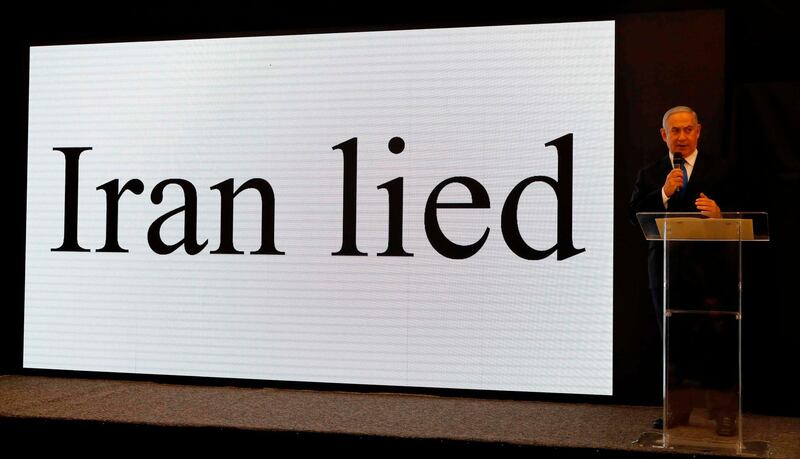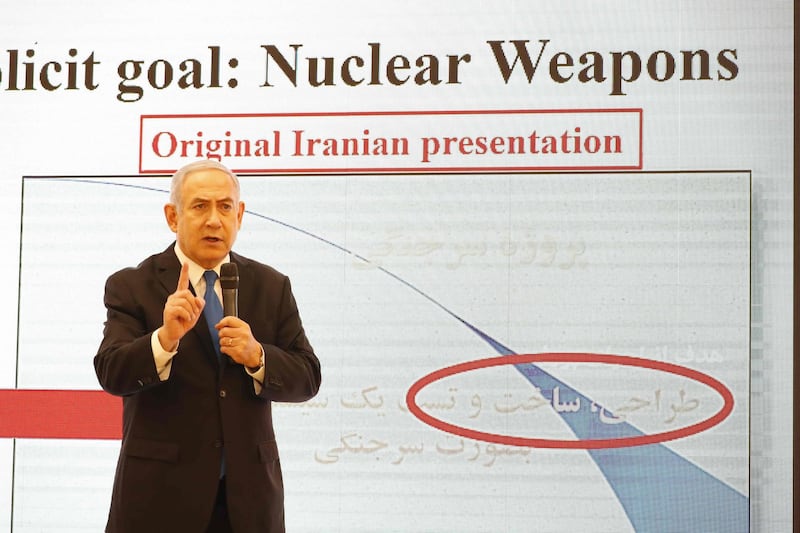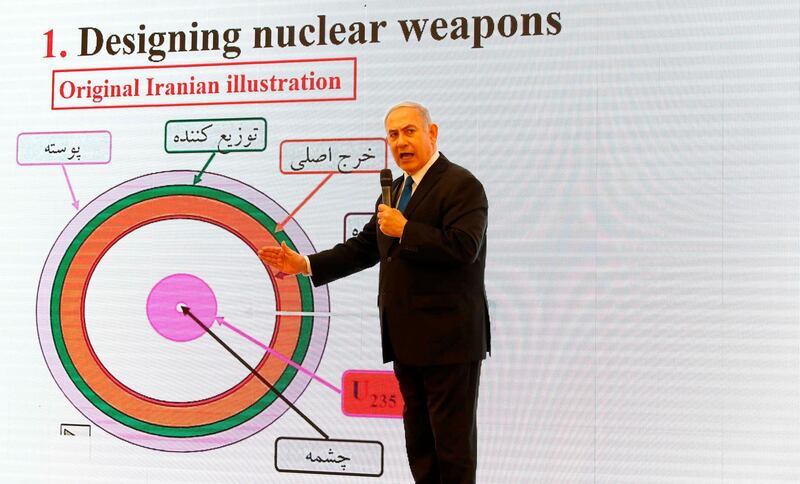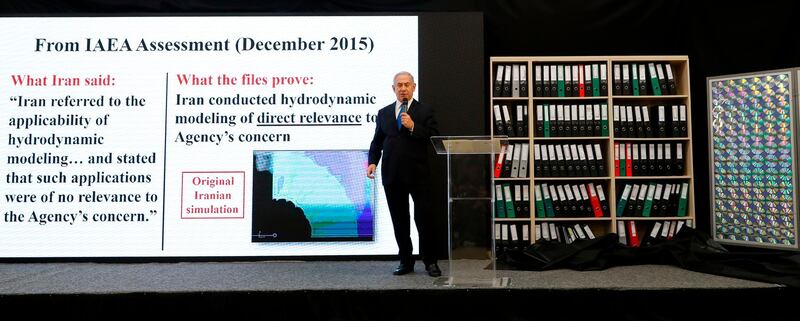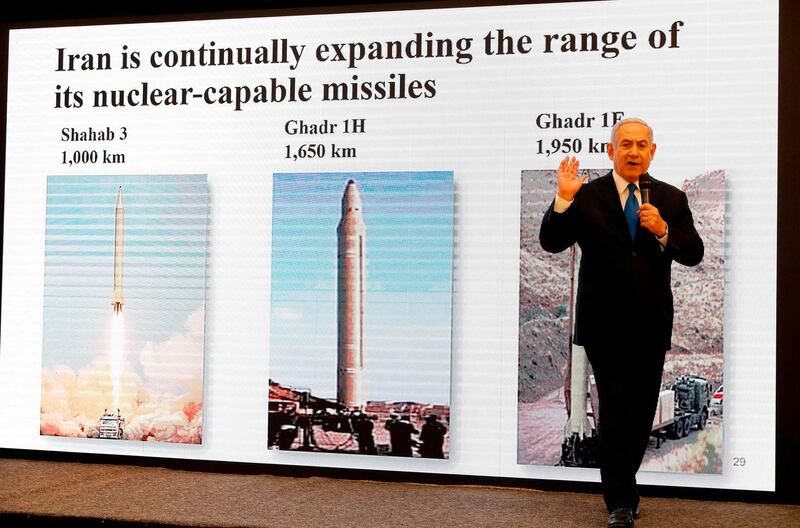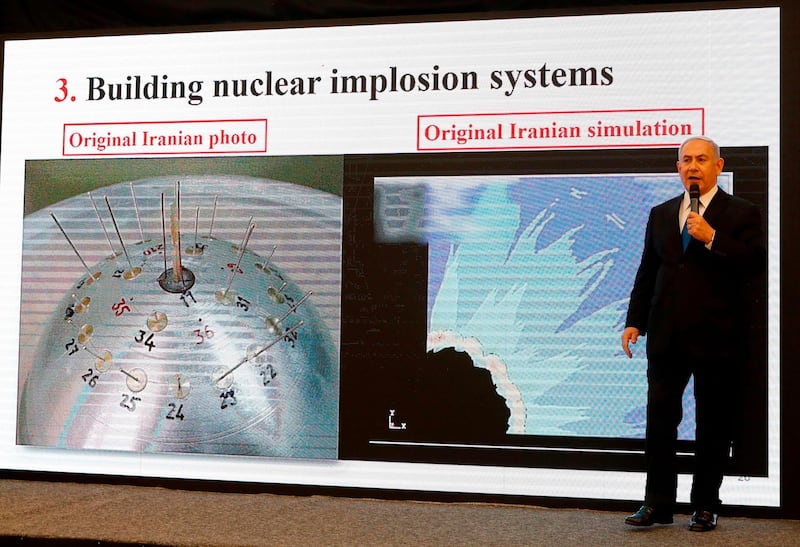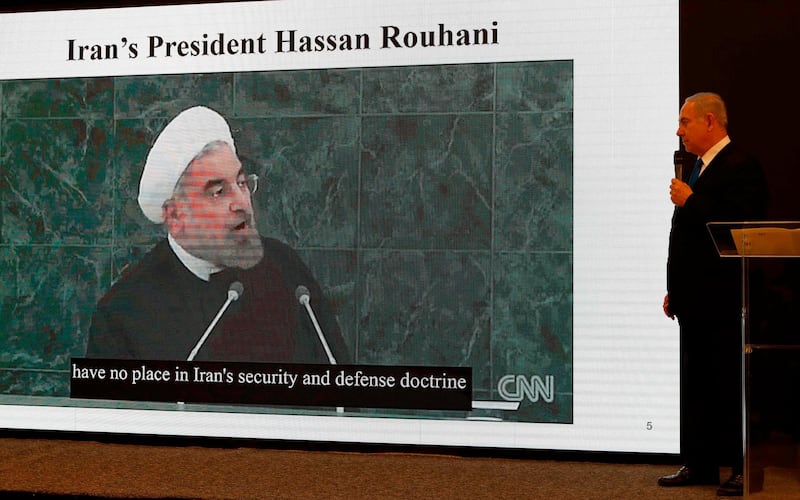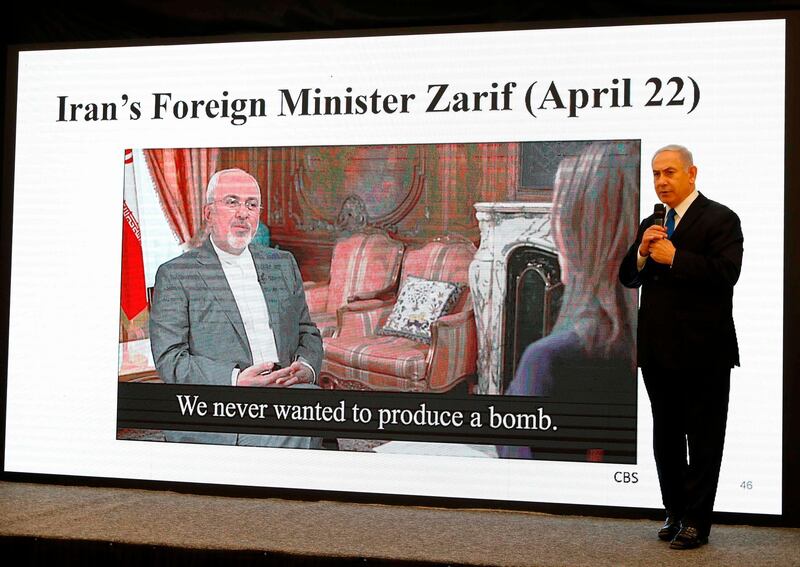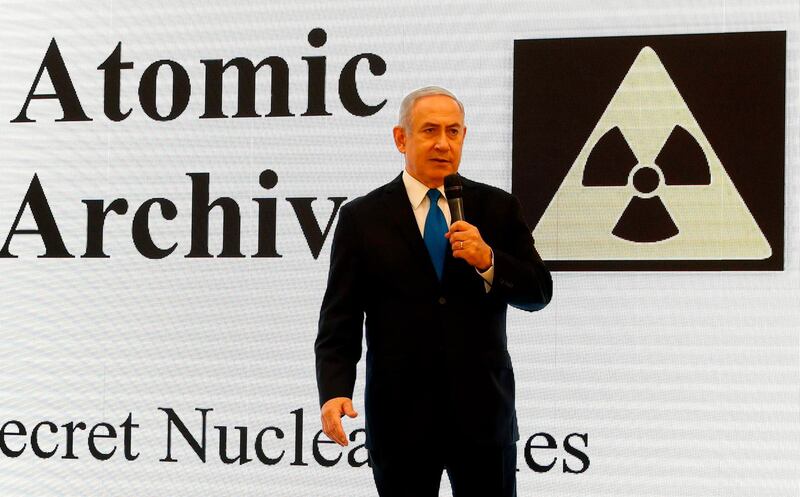After Benjamin Netanyahu's theatrical speech Monday night that stressed Iran had concealed efforts to develop nuclear weapons, many Israeli analysts echoed observers abroad in noting that it lacked a crucial component: evidence Tehran had actually violated the 2015 agreement whose fate now lies in US President Donald Trump's hands.
"There was nothing in it that brought something new or was unknown", Uzi Arad, a former director of Israel’s National Security Council, told journalists. "Historical things were presented but it had no proof of an Iranian violation of the agreement since it was signed”.
This is not entirely surprising since just a few weeks ago, at the beginning of April, the Israeli military’s chief of staff Gadi Eisenkot said the agreement "is working at the moment”.
In his speech, Netanyahu pressed his point about Iranian deceit by playing clips of the Islamic Republic’s leaders stating their opposition to the development of nuclear weapons. He then contrasted this with what he said were gleanings from 55,000 printed pages and 183 CDs seized from Iranian secret archives in Tehran penetrated, he said, in one of the biggest achievements ever by Israeli intelligence. The Israeli leader said the US could vouch for the authenticity of the documents.
On one level, Netanyahu's remarks were viewed to be aimed at Trump, who has until May 12 to decide whether to break with the accord. "Netanyahu wants to press Trump to either fix the deal or nix it and this can be seen as trying to give him evidence he would need”, said Leslie Susser, former diplomatic editor of Israeli magazine the Jerusalem Report.
"But it is a self-defeating move on Netanyahu's part because it is obvious that it is all old stuff and none of it proves Iran violated the deal made in 2015”.
Yet there was another layer to Netanyahu's presentation, one that must be understood in the context of the confrontation between Israel and Iran over Syria. Tensions have escalated markedly in recent days and threaten to erupt into a war. The conflict is burgeoning as Israel makes clear in word and deed that it will not accept Iranian military entrenchment in Syria.
On Sunday night, in a strike attributed to Israel, several sites were bombed in northern Syria between Hama and Aleppo. Those bases held large weapons stocks and possibly surface to surface missiles transferred from Iran to Syria, according to Israeli media reports. US officials said two dozen Iranian soldiers were killed in the strike, which came three weeks after another Israeli strike on the T-4 airfield near Homs, the launch site of an Iranian drone that penetrated Israeli airspace in February. Seven Iranian revolutionary guards were among the fourteen people killed in that strike.
__________
Read more:
Israel claims to have proof of 'secret' Iran nuclear programme
Iran brands Netanyahu 'scandalous liar' over nuclear archive
__________
Within this context, Netanyahu's announcement that the Mossad spy agency penetrated a secret archive in the heart of Tehran and whisked away its contents boosts Israeli deterrence vis-à-vis Iran, according to Ron Ben-Ishai, a security commentator for the Ynet news site.
"The most important aspect of the declaration [by Netanyahu] is publicizing the amazing intelligence achievement of attaining the huge archive and transferring it to Israel”, he wrote. “It is hard to describe in regular terms the power of this operation by the Mossad. When another country more than 1000 kilometers away is able to steal its secret archive, Iran cannot feel safe”.
Yossi Alpher, former director of what is now the Institute for National Security Studies, said the intel coup might make Iran think twice before engaging in an escalation.
"Netanyahu sent a signal that we not only have very good intelligence on what's happening in Syria and can find a bunker with missiles and destroy it, but that we have penetrated you in the center of Iran and can walk off with half a ton of documents”, he said. “This must give them pause for thought on 'whether we want to provoke them'".
At a time when Israel is bracing for Iranian retaliation to the latest strikes, amid a threat of a wider escalation, Netanyahu has signaled to Iran through his speech that Israel has an "intelligence advantage”, Alpher said. But, he added, "it might not work and could give the Iranians additional motives for striking back”.
Amos Yadlin, a former military intelligence chief and currently director of INSS, said he did not believe Netanyahu's speech should be seen in the context of the Syrian tensions.
But during a conference call with journalists, he stressed that the risk of a clash with Iran is now very palpable.
"A clash in the north can happen tomorrow, next week or next month. May is very explosive. The Iranians were attacked twice. They blame Israel and are preparing retaliation. Due to good intelligence and its airforce, Israel might not let it happen.
“But the chances of an escalation in the northern border due to Iranian determination to build a very dangerous force that collides with Israeli determination” not to let that happen, he said, is something to be seriously concerned about.
